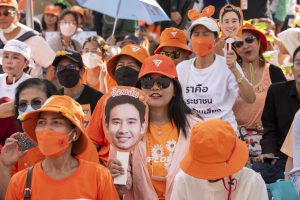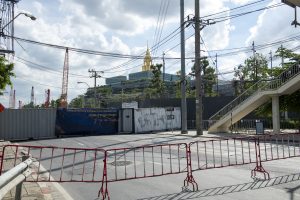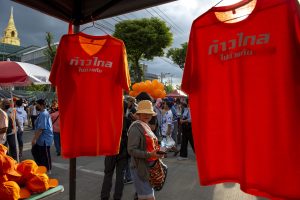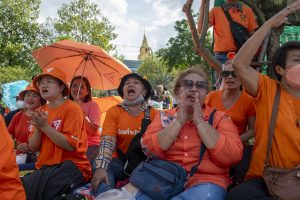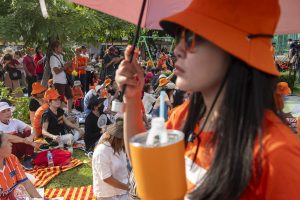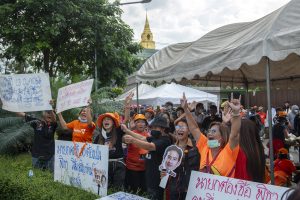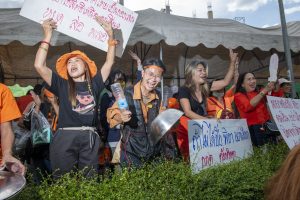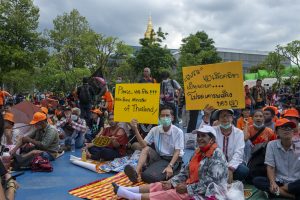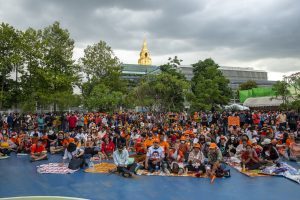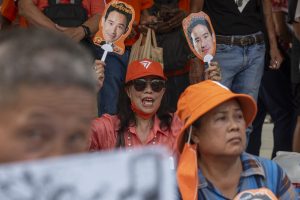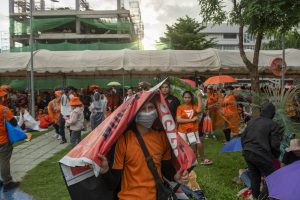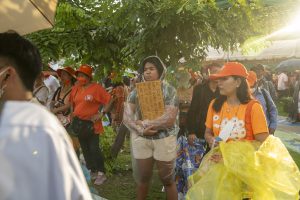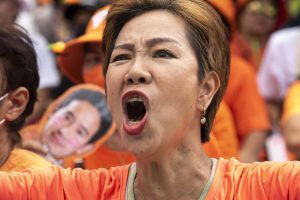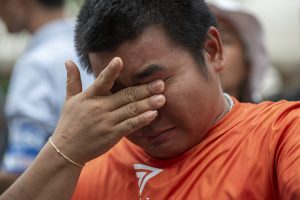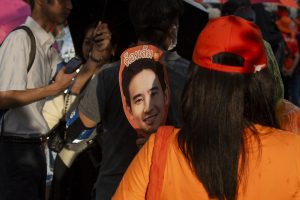Nearly two months after Thailand held national elections, the newly formed parliament convened on Thursday, July 13 to vote for the country’s next prime minister. While MPs prepared for the vote in the parliamentary chamber, supporters of the Move Forward Party (MFP) and its leader Pita Limjaroenrat gathered outside to follow the anticipated vote. Faced with the prospect of large gatherings, authorities placed shipping containers and barbed wire on roads leading to parliament to stop protestors from reaching the building.
In the weeks leading up to the vote Pita and members of the MFP appeared confident that they could secure the needed support to put their candidate in the top spot. With just 151 seats won by Move Forward in the election, and the MFP-led eight-party coalition holding a total of 312 seats, Pita needed the support of 64 conservative MPs or military-appointed senators to successfully become Thailand’s 30th prime minister.
Adding to these obstacles, just a day before the vote for prime minister, Thailand’s Election Commission announced that it would forward cases stemming from complaints over the MFP’s plans to amend Article 112, a law designed to protect the royal family, and complaints associated with Pita’s holding of media company shares to the Constitutional Court. This would effectively suspend Pita as an MP while the complaints were investigated and add another layer of difficulty to his bid to become Thailand’s next prime minister
When asked by foreign media about how confident he was ahead of entering the meeting Pita simply said, “I will do my best.”
As voting progressed it became clear that Pita would not receive enough votes to become Thailand’s next leader. In total he gathered 324 votes, 52 votes short of the 376 he needed. It was announced before the vote began that if no candidate received enough support, another vote would be held on July 19.
It is expected that protestors will again come out to support Pita and the Move Forward Party on the day of the vote next week.













